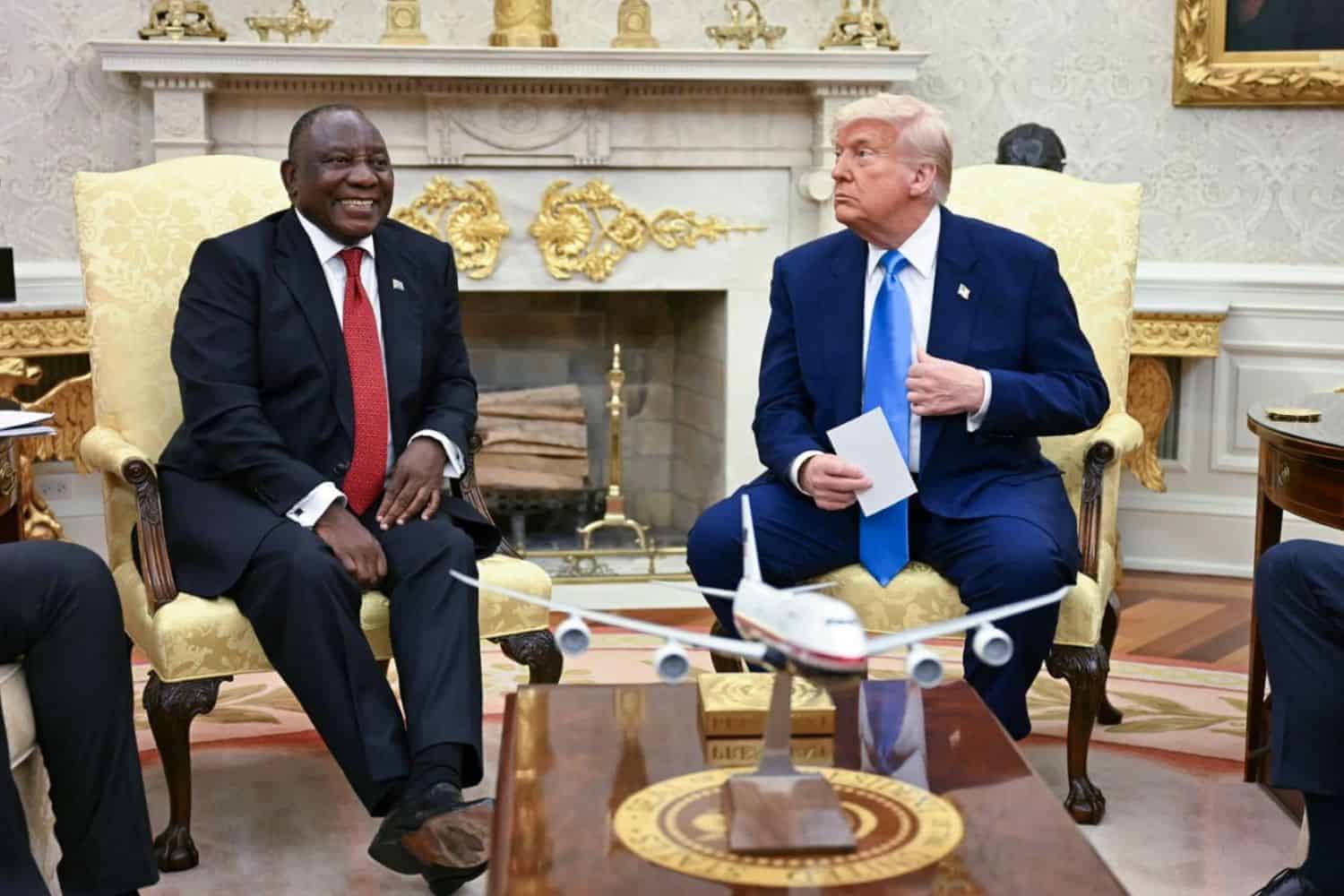Wouldn’t it be great if South Africa could go to the US and show the successes of BEE, rather than an arbitrary moral assertion?

If you’re seeking honesty, convincing Donald Trump of the ethics behind BEE is a losing battle.
I have no idea what that phone call between him and South African President Cyril Ramaphosa was all about, but unless it outlined the successes of BEE, how could anybody expect to turn his opinion?
The Americans think BEE as a matter of redress is wrong. South Africa thinks it’s right. There are no tie-breakers in this one. It’s not like Sweden is going to jump in with a casting vote.
So, if the US’s actions towards South Africa are based on its sentiment towards our internal policies, there is little more than a dichotomous choice: appease the US or tell them to shove off. With Trump at the helm, it’s unlikely that you’re going to get a hybrid solution, especially since we aren’t “holding the cards”.
Talks between SA and US a waste of time
So why are we wasting time on bilateral talks trying to convince one another of the ethics behind the concept? A policy like BEE is polarising. I don’t think anybody believes a phone call will take an extreme man from one side of the podium to the other.
Perhaps we’re gearing up to demonise the US and that may have been a decent political strategy if we had any political capital to play with. Given South Africa’s decreasing importance in the global economy, it doesn’t seem like we even have that going for us.
A land where journalists do more to deal with corruption than the collective multiple tax-funded institutions of state? That’s the kind of country that’s going to demonise the US? Forgive my doubts, but they are present.
ALSO READ: Inside Ramaphosa’s call with Trump over devastating tariffs
So while the argument of immorality is available to the Trump administration, the argument of morality isn’t convincing. Two kids are arguing. One says yes, one says no. Who wins?
Who knows, but the outcome won’t be based on whether they said yes or no. It will be based on what else they come to the argument with.
The US is coming into this argument with a bigger economy, more leverage and, very importantly, an equally held belief in the morality of its argument. What’s South Africa got? That same equally held belief? That’s not going to move the needle, not even in the slightest.
Despite making the claim that we are not beggars, we sure do seem to be doing our share of begging at the moment. Why? Is it important to appease the US? If it is, then do it! Stop trying to drag this out, knowing it’s a losing battle.
I’d rather resources are spent developing South Africa to the point where we could tell the US to get lost… but that would take administrative competency, some work and a whole lot of things we don’t expect from our government.
ALSO READ: ‘If they want to bring sanctions, let them’: Mbalula challenges Trump administration
If you ask the question of what the ideal situation would be, it would be that we can play nicely with all the countries of the world. That’s not happening, but given the importance of the US as a trading partner, it would be nice to prioritise playing nicely with them.
How to convince US that BEE is good
How do we convince them that BEE is the way forward? It’s pretty simple. Do it the way Trump loves doing things – with spectacle. Bring out the posters of the BEE success stories – show the economic growth brought on by BEE – deliver the statistics of great investor appetite for BEE.
In short, make a big splash about how much the policy worked. Show the world that not only did it work, but it was secured against self-enrichment and avoided plunging more people into poverty.
Show them how your great policy improved employment and show them how the people benefited en masse. Show them something about your great policy that you’re clinging to with every ounce of alleged morality that it works.
Wouldn’t it be great if South Africa could go to the US and tell a good story about BEE? One that professes its successes, rather than an arbitrary moral assertion.
Wouldn’t it be great if the South African government, which so believes in its policy, would, after decades, be able to put together some convincing statistics that it’s effective?
Wouldn’t it be great if that phone call was ballsy enough to include, “this is what we’ve done for redress and this is how it’s worked!”?
READ NEXT: ‘It’s just gone’ – Trump’s tariffs cost SA company R750m overnight






